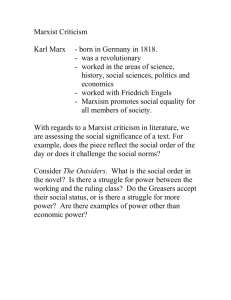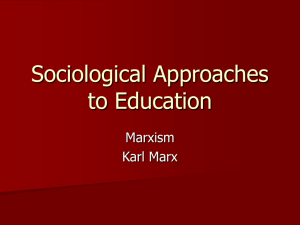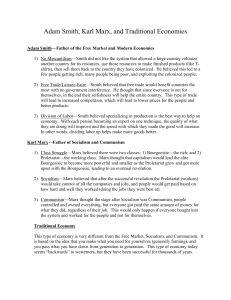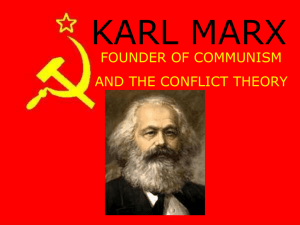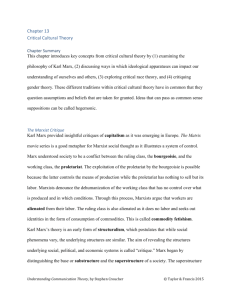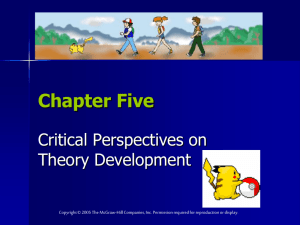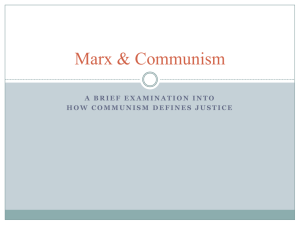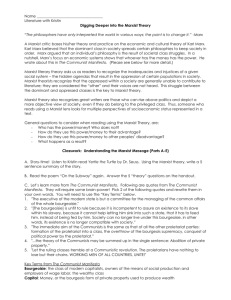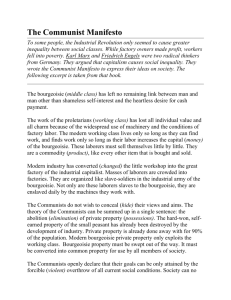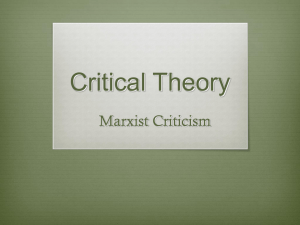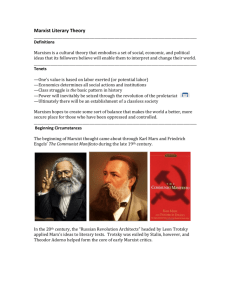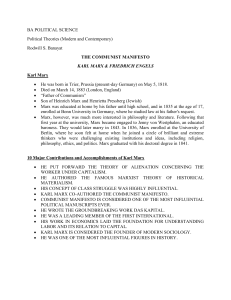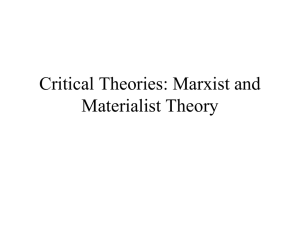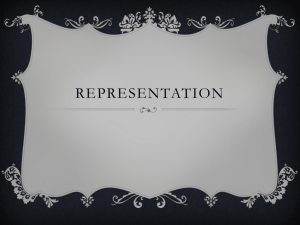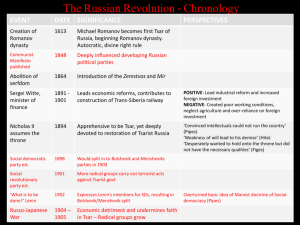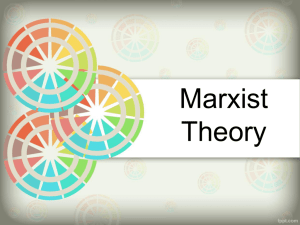Marxism Handout - eng4usummerschool
advertisement
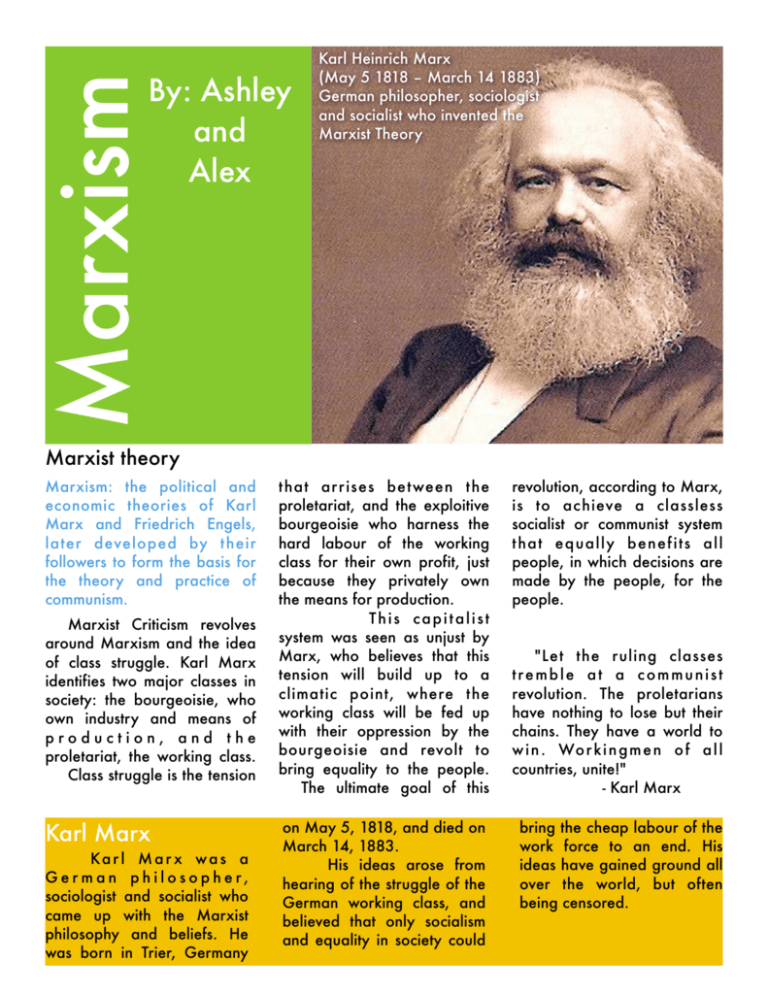
Marxism By: Ashley and Alex Karl Heinrich Marx (May 5 1818 – March 14 1883) German philosopher, sociologist and socialist who invented the Marxist Theory Marxist theory Marxism: the political and economic theories of Karl Marx and Friedrich Engels, later developed by t heir followers to form the basis for the theory and practice of communism. Marxist Criticism revolves around Marxism and the idea of class struggle. Karl Marx identifies two major classes in society: the bourgeoisie, who own industry and means of production, and the proletariat, the working class. Class struggle is the tension Karl Marx Ka r l M a r x wa s a Ger man philosopher, sociologist and socialist who came up with the Marxist philosophy and beliefs. He was born in Trier, Germany t hat ar r ises between t he proletariat, and the exploitive bourgeoisie who harness the hard labour of the working class for their own profit, just because they privately own the means for production. This capitalist system was seen as unjust by Marx, who believes that this tension will build up to a climatic point, where the working class will be fed up with their oppression by the bourgeoisie and revolt to bring equality to the people. The ultimate goal of this revolution, according to Marx, is to ac hieve a classless socialist or communist system t hat eq uall y benef its all people, in which decisions are made by the people, for the people. on May 5, 1818, and died on March 14, 1883. His ideas arose from hearing of the struggle of the German working class, and believed that only socialism and equality in society could bring the cheap labour of the work force to an end. His ideas have gained ground all over the world, but often being censored. "Let the ruling classes tremble at a communist revolution. The proletarians have nothing to lose but their chains. They have a world to w i n . Wo r k i n g m e n o f a l l countries, unite!" - Karl Marx Friedrich Engels Friedrich Engels was a lesser known man than Karl Marx. They worked together on the publication called the Communist Manifesto which outlines the the ideas of Marxism, and blames all previous societal conflicts on the inequality of the classes and the misery of the exploited proletariat. The Communist Manifesto identifies 3 major historic phases of humanity. Slaver y, Feudalism and Capitalism. Slavery was obviously unjust, and revolution occurred to move onto Feudalism. Although more fair, Feudalism was still causing an unequal treatment between the poor and the working class. Capitalism was the final step. Marxist Literary Criticism: Analysing the Social Equality of the Classes Things to consider when analysing literature from a Marxist "lens," these are some things to consider: •Are characters equitably portrayed? •What classes are the characters in? •Whom does their work benefit? •Are the characters in conflict of opposing classes? •Are the proletariat portrayed as inferior? •Are they shown as uneducated, unhygienic or oppressed? •Are the bourgeoisie portrayed as superior? •Are they shown as intelligent, classy, oppressive, manipulative or corrupt? •What values does the text reinforce? •What values does the text subvert? •What causes the conflict between the classes?
